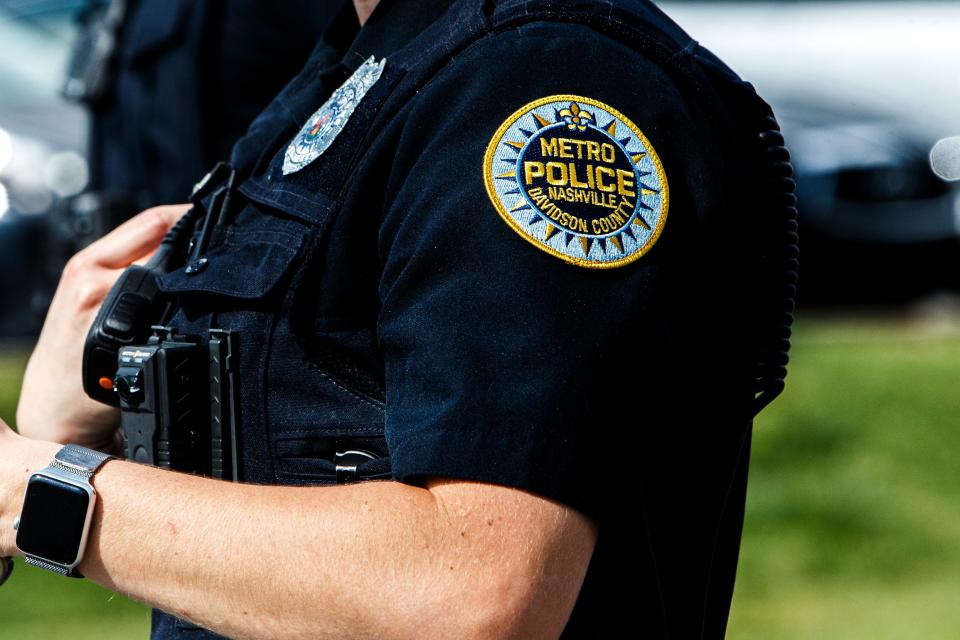State trooper says Nashville police denied him job over HIV status in federal lawsuit
A Tennessee state trooper is suing the Metro Nashville Police Department, which he says rescinded his job offer after learning he was positive for HIV. The plaintiff says Metro’s actions violate the Americans with Disabilities Act.
The lawsuit was filed in federal court Friday by a pseudonymous plaintiff.
The plaintiff is represented by a team of attorneys from across the country, including counsel with the Lambda Legal Defense and Education Fund, a New York-based civil rights organization that represents and advocates for LGBTQ+ people and anyone living with HIV.
The organization has successfully argued a number of similar lawsuits against police departments across the country. In 2012, Lambda Legal reached a $250,000 settlement with the City of Atlanta, which denied a police officer a position based on his HIV status.

“This applicant was taking advantage of today’s medical advancements and treatments; there is absolutely no reason why his HIV status is at all relevant to his ability to perform the duties of a job in law enforcement, the military, or any other job," said Greg Nevins, senior counsel and the director of Lambda Legal's Employment Fairness Project, in a news release.
According to the complaint, the man applied for a position in Nashville in September 2019 after working for another Tennessee police department where he was named Officer of the Year.
In February 2020, he was offered the job on the condition that he pass a medical examination.
As part of that medical examination, he underwent a blood test. He says he wasn’t told the purpose of the bloodwork or what was being tested.
Once that test was done, a nurse called him to tell him he was HIV positive. According to the lawsuit, he told the nurse that he knew about his diagnosis, was on treatment for it, and that his viral load, or the amount of HIV in his blood, “had been undetectable, or un-transmittable, for over five years," which, according to the Centers for Disease Control, meant he posed virtually no risk of transmission.
But in March, he received his rejection letter. The reason given was at that time, Metro's policy required police officers to meet medical standards set by the U.S. Army. Those standards disqualified those with an HIV diagnosis.
He appealed, and his doctor wrote a note explaining that he didn’t pose any threat to his co-workers or the community, and that his diagnosis had never affected his job duties.
But the Nashville Civil Service Commission denied his appeal, citing his HIV diagnosis, writing that he “cannot perform all of the safety sensitive functions of the job without placing them, other employees and/or the public at increased risk” and that there were “no reasonable accommodations” that will allow them to “safely perform the functions,” a copy of the decision included in court filings shows.
He filed a claim with the Equal Employment Opportunity Commission in August 2020. Metro argued with the EEOC that it didn’t discriminate against the plaintiff — his disability just disqualified him for the position.
“Metro emphatically denies it discriminated against Mr. (redacted) due to his disability. Per the Metropolitan Charter, Mr. (redacted) is not qualified for the position of a police officer with the MNPD,” Metro’s position statement with the EEOC, which was filed as an exhibit in the case, reads.
More than a year after he filed his claim with the EEOC, it shared its findings in a letter, which was favorable to him. The EEOC found “reasonable cause to believe that Respondent discriminated against Charging Party when he was immediately disqualified for employment after his disability was revealed during a post-hiring medical examination.”
He received a notice of right to sue from the U.S. Department of Justice in April 2023.
Lambda Legal said Metro's actions had a disproportionate impact on people of color. The organization said that nearly 60% of people living with HIV in Nashville are Black. AIDSVu, a mapping tool of the HIV epidemic made by Emory University’s Rollins School of Public Health, puts that number at 53%.
The plaintiff is seeking an order prohibiting Metro from refusing to employ individuals with disabilities, including persons with HIV; ADA training for all MNPD employees; back pay; a position with MNPD or front pay; damages for emotional pain, suffering, inconvenience, humiliation and loss of enjoyment of life; punitive damages and attorneys’ fees.
Metro has since changed its standards for police officers. Nashville residents in July 2022 passed four amendments to Metro's charter, one of which removed MNPD's requirement that a new hire "meet physical standards as set forth by the United States Army or Navy" and instead allows the Civil Service Commission to set physical requirements.
An MNPD spokesperson declined to comment and instructed The Tennessean that all questions regarding litigation be sent to Metro Legal. A spokesperson for Metro Legal said it had not yet been served and declined to comment on the pending litigation.
Evan Mealins is the justice reporter for The Tennessean. Contact him at emealins@gannett.com or follow him on Twitter @EvanMealins.
This article originally appeared on Nashville Tennessean: Nashville police accused of HIV discrimination in lawsuit

